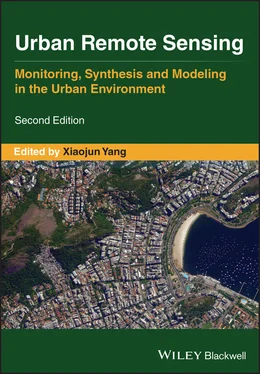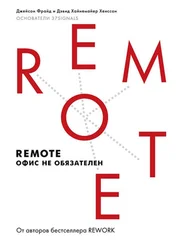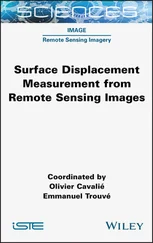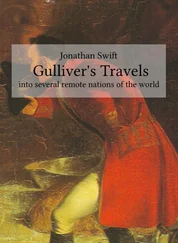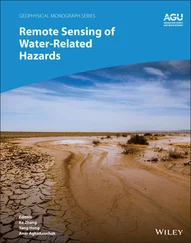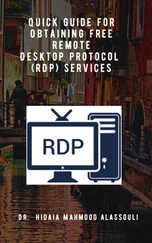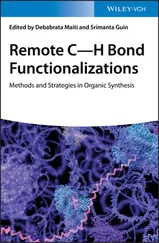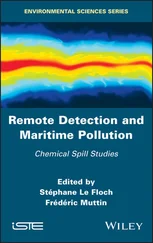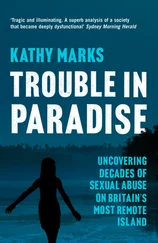1 ...6 7 8 10 11 12 ...38 Raffaele LafortezzaRaffaele Lafortezza is an Associate Professor at the University of Bari, Italy and in the University of Hong Kong. His main research effort is to provide natural resource managers and decision‐makers with geospatial knowledge, tools, and indicators that would enable them to become better stewards of healthy and sustainable ecosystems. His research involves the development and use of remote sensing technology to map, monitor, and assess urban forest resources and ecosystem services.
Feilin LaiFeilin Lai is a doctoral candidate in the Department of Geography at the Florida State University. Her research interests include remote sensing, GIS, machine learning, and spatial analysis with applications in urban ecology and land change science.
Thomas LauvauxThomas Lauvaux is a Make Our Planet Great Again (MOPGA) research laureate at the Laboratoire des Sciences du Climat et de l'Environnement (LSCE) in France and an affiliate at the Pennsylvania State University in the USA. He holds a PhD in Atmospheric and Climate Sciences and is specialized in data assimilation and mesoscale modeling applied to carbon cycle science. His current research focuses on developing atmospheric assimilation systems at both regional and urban scales to measure fossil fuel emissions from large metropolitan areas and sources and sinks over continents.
Arthur LehnerArthur Lehner received his PhD in Applied Geoinformatics from the University of Salzburg, Austria in 2019. His research interest focuses on the use of remote sensing for urban planning applications. Specifically, he contributed to remote sensing guided analysis of urban space.
Xiaojiang LiXiaojiang Li is an Assistant Professor in the Department of Geography and Urban Studies at Temple University, USA. He was a Postdoctoral Fellow at MIT Senseable City Lab. His research focuses on developing and applying geospatial analyses and data‐driven approaches in the domain of urban studies. He proposed to use Google Street View for urban environmental studies and developed the Treepedia project to map street greenery for cities around the world. He is currently using human trace data to study human activities and investigate the connection between urban environments and human activities.
Xun LiXun Li is a Postdoctoral Fellow and a part‐time Lecturer at the Department of Geography, the University of Hong Kong. His research interest focuses on environmental economics, urban ecology, geographic information systems, and remote sensing. He served as a GIS specialist and provided consultancy services to different sectors and departments in Hong Kong, such as Lands Department, Construction Industry Council, among others.
Hao‐Yu LiaoHao‐Yu Liao is a Research Assistant in the Department of Geography at National Taiwan University, Taiwan. Her research interests are spatial data analysis and environmental remote sensing, particularly SAR image analysis. Her master thesis focuses on establishing a machine‐learning model to capture the spatial heterogeneity of radar’s double‐bounce effect in SAR imagery. This work was published in the International Journal of Applied Earth Observations and Geoinformation .
Xiuwen LiuXiuwen Liu is a Professor of Computer Science at the Florida State University, Tallahassee, Florida, USA. His main research interests are machine learning, deep learning, natural language processing, and applications to remote sensing and other areas. He received the Young Investigator Award from the International Neural Network Society in 2004, the best paper award from the International Conference on Computer Vision Theory and Applications in 2007, and the Developing Scholarship Award from the Florida State University in 2008.
Yu LiuYu Liu is Boya Professor of GIScience at the Institute of Remote Sensing and Geographical Information Systems, Peking University, China. His research interests focus on analytical methods for various types of big geo‐data. He has been the PI or a Co‐PI for about 10 grants from NSFC (National Science Foundation of China) and MOST (Ministry of Science and Technology) of China. He published more than 150 papers in peer‐reviewed journals.
Ying LuYing Lu is a PhD student of Geography at the University at Buffalo, the State University of New York, USA. Her research interest centers on large‐scale remote sensing and mangrove forests. She has authored two papers about mangrove forests and Google Earth Engine.
Ding MaDing Ma is currently a Postdoctoral Researcher at Research Institute for Smart Cities, School of Architecture and Urban Planning, Shenzhen University, Shenzhen, China. His current interests focus on topological and scaling analysis as well as complexity modeling of urban structure, particularly in the context of big data.
Shamil MaksyutovShamil Maksyutov is a Specialist at the Satellite Observation Center, National Institute for Environmental Studies, Japan. His research interest is with the development of inverse models using satellite observations of greenhouse gases for emission estimation at global, regional, and country scale. He published more than 190 research papers and served as lead author for 2019 Refinement to 2006 IPCC Guidelines on national emission inventories.
Adam J. MathewsAdam J. Mathews is an Associate Professor of Geography at Western Michigan University in Kalamazoo, Michigan, USA. His research incorporates remote sensing technologies and creates and/or adapts a variety of geospatial methodologies to study environmental processes. Specifically, he focuses on urban areas and vegetation using three‐dimensional data from light detection and ranging (lidar) and drone‐based Structure from Motion (SfM) photogrammetry. A broadly trained geographer, Dr. Mathews is the author/coauthor of over 20 peer‐reviewed articles on topics ranging from remote sensing and GIS applications to cultural geography.
Jacob (Jake) McKeeJacob (Jake) McKee is a Research Scientist at Oak Ridge National Laboratory (ORNL), USA. He currently leads the LandScan Global project. Updated annually, LandScan Global is a gridded data set modeling the spatial distribution of population for the world. While at ORNL, he has supported numerous research initiatives through the analysis and processing of high‐resolution satellite imagery at scale in a High‐Performance Computing (HPC) environment, including preprocessing, segmentation, classification, and feature extraction.
Massimo MenentiMassimo Menenti is a Professor of Optical and Laser Remote Sensing in the Faculty of Civil Engineering and Geosciences at the Delft University of Technology (TU‐Delft), the Netherlands. His research focuses on surface parameter retrievals from remote sensing, remote sensing‐based evapotranspiration (ET) estimation, time series analysis of remote sensing products, and the application of remote sensing technology in hydrology and climate models.
David MerrickDavid Merrick is the Director of the Emergency Management and Homeland Security Program and the Center for Disaster Risk Policy at the Florida State University. His research interests focus on unmanned systems in emergency management, remote sensing in disasters, information systems, social media in disasters, logistics, and disaster planning.
Son V. NghiemSon V. Nghiem is a Senior Research Scientist at the Jet Propulsion Laboratory, California Institute of Technology, USA. His research encompasses active and passive remote sensing, electromagnetic scattering and emission modeling, and Earth science and applications. He has published over 120 peer‐reviewed articles and over 450 conference articles. He holds a patent on wind measurements for offshore wind energy development. He received three NASA medals for exceptional achievements in science and technology. He is an AGU (American Geophysical Union) Fellow and an IEEE Fellow. His research has been reported worldwide by major news networks.
Читать дальше
